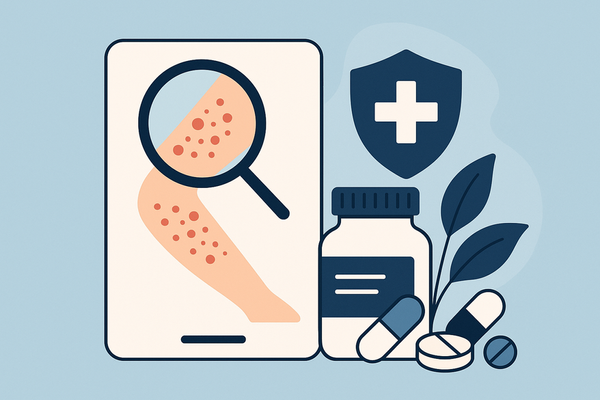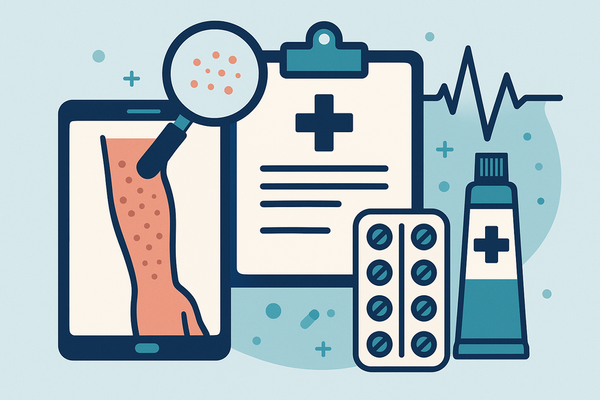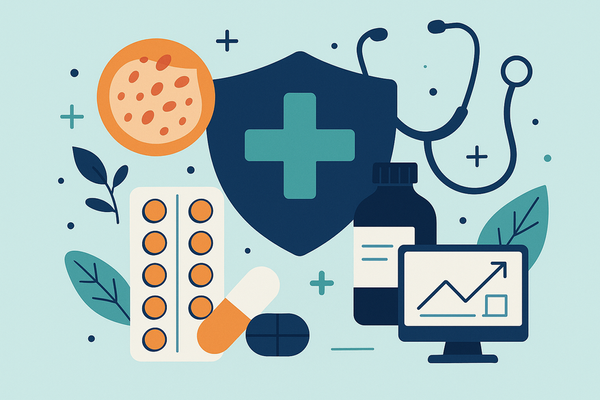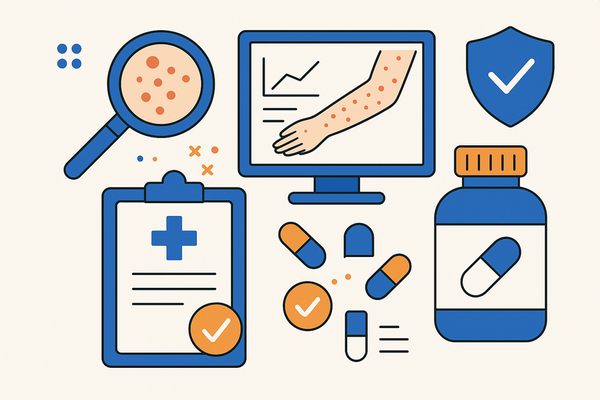Holistic Rash Management Strategies: Enhance Skin Health with Stress Relief and Sleep
Discover holistic rash management strategies that incorporate stress relief and sleep hygiene to promote healthier skin and long-term wellness.
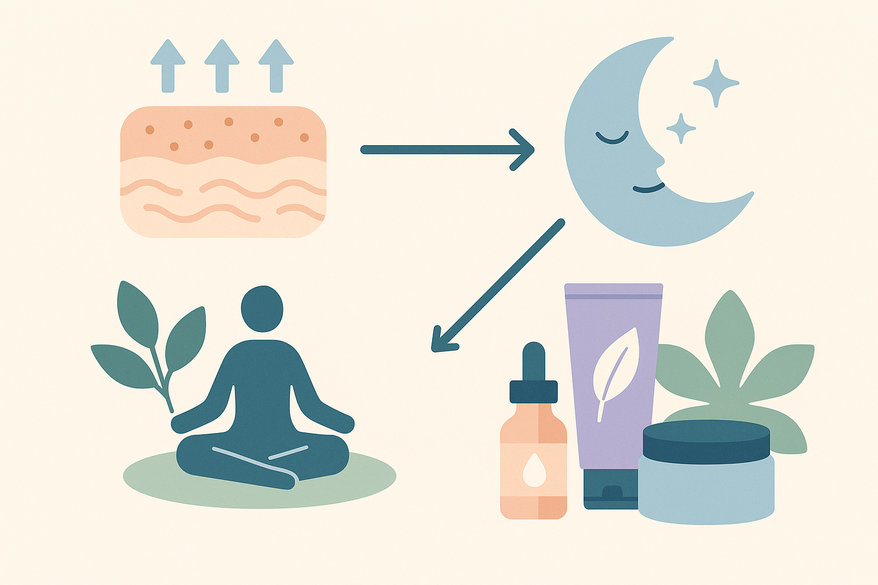
8 min read
Key Takeaways
- Holistic care targets root causes—environmental, dietary, and psychological—rather than masking symptoms.
- Stress reduction techniques like mindfulness and exercise lower inflammation and support skin barrier function.
- Quality sleep accelerates skin repair through growth hormone release and improved barrier restoration.
- Combining stress relief, sleep hygiene, and topical treatments leads to long-term rash improvement.
- Tracking triggers and integrating daily rituals empowers proactive, sustainable rash management.
Table of Contents
- Understanding Holistic Rash Management Strategies
- The Role of Stress in Skin Health
- The Impact of Sleep on Skin Health
- Integrating Stress and Sleep Management into Rash Care
- Practical Holistic Strategies for Rash Management
- FAQ
Understanding Holistic Rash Management Strategies
Holistic rash management strategies take an integrative view of the individual—skin, mind, and lifestyle—to pinpoint triggers and support healing at the source. Rather than only covering up itchy or inflamed skin, this method seeks lasting relief.
Core Principles:
- Identifying and managing underlying triggers
- Environmental allergens (dust mites, pollen)
- Dietary habits (dairy, gluten sensitivities)
- Psychological stressors (anxiety, work pressure)
- Integrating lifestyle modifications alongside topical or medical treatments
- Anti-inflammatory nutrition
- Stress reduction practices
- Sleep hygiene and regular rest
“Holistic approaches focus on addressing the underlying causes rather than merely masking the symptoms.”
This integrative path aligns with peacehealth.org’s guidance on root-cause treatment and Healthline’s focus on mind-body connections.
The Role of Stress in Skin Health
Holistic rash management strategies recognize stress as a powerful catalyst for skin disorders. Chronic mental tension raises cortisol and inflammatory mediators, undermining immune defenses and disrupting the barrier that keeps irritants out. High stress levels can:
- Trigger hives and urticaria outbreaks
- Worsen eczema or atopic dermatitis
- Slow wound healing and prolong flares
Physiological Impact of Stress:
- Cortisol surges increase cytokines that inflame skin tissues.
- Immune imbalance favors Th2 responses, linked to eczema.
- Barrier disruption leads to transepidermal water loss and dryness.
Key Stress-Reduction Techniques:
- Mindfulness & meditation – Lowers cortisol and systemic inflammation (Healthline)
- Regular exercise – Regulates stress hormones and boosts endorphins (Harvard)
- Therapy or support groups – Builds coping skills for chronic anxiety (Healthline)
Practical Tip: Try a 5-minute guided breathing exercise when you notice tension or an emerging itch.
Discover more about stress-related rash triggers.
The Impact of Sleep on Skin Health
Holistic rash management strategies place sleep at the heart of skin repair. Quality slumber triggers growth hormone release, accelerating cell turnover and tissue rejuvenation. In deep sleep cycles:
- Collagen synthesis and elastin production increase
- Skin barrier restoration is optimized
- Cellular waste removal via lymphatic drainage intensifies
Consequences of Poor Sleep:
- Elevated inflammatory markers (IL-6, CRP)
- Impaired barrier function leading to dryness and sensitivity
- Increased susceptibility to irritants and infections
Sleep Hygiene Tips:
- Consistent Schedule – Go to bed and wake up at the same times daily.
- Caffeine & Blue-Light Limits – Avoid coffee and screens 1–2 hours before bedtime.
- Ideal Sleep Environment – Cool (60–67°F), dark, and quiet bedroom.
Before & After Anecdote: Patient A struggled with nightly eczema flares. After committing to a 10 pm–6 am sleep window, she saw flare frequency drop by 50% within four weeks.
Learn more about sleep’s impact on skin health.
Integrating Stress and Sleep Management into Rash Care
Holistic rash management succeeds when you treat both mind and skin. Topical treatments alone often provide only temporary relief. Adding stress reduction and sleep improvement creates a synergy:
- Better rest reduces cortisol, which eases inflammation.
- Lower stress helps you unwind at night, deepening sleep.
- Restored barriers respond more effectively to creams and ointments.
Case Example: A patient with chronic hives combined daily 10-minute meditation, 30 minutes of walking, and a strict 11 pm–7 am sleep schedule to his prescribed topical steroid. Flare-ups decreased by 70% over eight weeks.
For an added layer of monitoring, you can use AI-based skin analysis like Rash Detector to capture and evaluate rash photos instantly. Below is a sample report highlighting key insights:
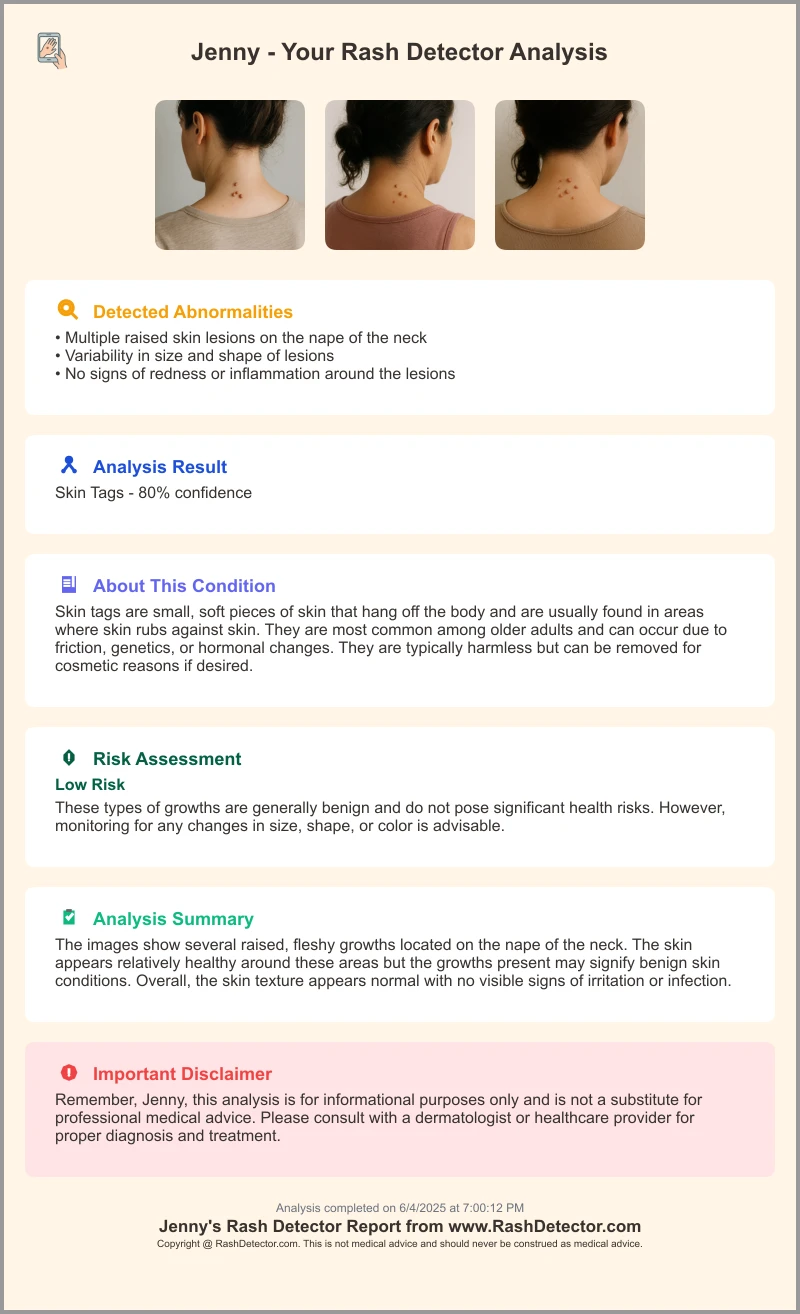
For tips on integrating daily AI monitoring, see the detailed guide.
Practical Holistic Strategies for Rash Management
Here’s a detailed, step-by-step plan to weave stress relief and sleep improvement into your rash care regimen:
- Identify Triggers
- Keep a symptom journal logging foods, products, and stressors.
- Try an elimination diet under professional guidance to pinpoint dietary culprits.
- Sources: theskinartistry.com, peacehealth.org
- Topical Relief Rituals
- Cool compresses (10–15 minutes) to soothe inflammation.
- Colloidal oatmeal or milk baths for gentle exfoliation and calm.
- Fragrance-free moisturizers, aloe vera gel, or virgin coconut oil (patch-test first).
- Sources: healthline.com/home-remedies-for-rashes, healthline.com/health/skin-disorders/stress-rash
- Dietary Adjustments for Anti-Inflammatory Support
- Increase omega-3 foods (salmon, chia seeds).
- Add antioxidant-rich fruits and vegetables (berries, leafy greens).
- Source: theskinartistry.com
- Daily Mindfulness Practice
- 10 minutes of guided meditation or yoga to regulate stress hormones.
- Source: health.harvard.edu
- Protective Habits
- Wear breathable, loose cotton clothing.
- Use mild, pH-balanced cleansers.
- Moisturize immediately after a gentle cleanse.
- Sources: healthline.com/home-remedies-for-rashes, healthline.com/health/skin-disorders/stress-rash
Printable Checklist Idea:
- Trigger journal entry
- Morning meditation (10 min)
- Anti-inflammatory meal
- Skin relief ritual
- Consistent bedtime routine
FAQ
How does stress worsen rashes?
Cortisol surges from chronic stress increase inflammation and impair skin barrier function, leading to flare-ups.
What sleep routine benefits skin healing?
A consistent sleep-wake schedule (ideal: 7–9 hours) in a cool, dark environment promotes collagen synthesis and barrier restoration.
Can dietary changes alone manage my rash?
While an anti-inflammatory diet supports skin health, combining nutrition with stress reduction and sleep hygiene yields better outcomes.
When should I see a dermatologist?
If rashes persist despite holistic strategies or worsen rapidly, seek professional evaluation to rule out infections or severe conditions.
Are AI tools like Rash Detector effective?
AI-based monitoring can help track rash progress objectively, but it should complement—not replace—professional medical advice.


